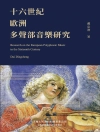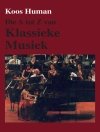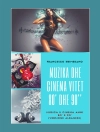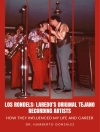The Bolsheviks’ 1917 political coup caused a seismic disruption in Russian culture. Carried by the first wave of emigrants, Russian culture migrated West, transforming itself as it interacted with the new cultural environment and clashed with exported Soviet trends. In this book, Klára Móricz explores the transnational emigrant space of Russian composers Igor Stravinsky, Vladimir Dukelsky, Sergey Prokofiev, Nicolas Nabokov, and Arthur Lourié in interwar Paris.
Their music reflected the conflict between a modernist narrative demanding innovation and a narrative of exile wedded to the preservation of prerevolutionary Russian culture. The emigrants’ and the Bolsheviks’ contrasting visions of Russia and its past collided frequently in the French capital, where the Soviets displayed their political and artistic products. Russian composers in Paris also had to reckon with Stravinsky’s disproportionate influence: if they succumbed to fashions dictated by their famous compatriot, they risked becoming epigones; if they kept to their old ways, they quickly became irrelevant. Although Stravinsky’s neoclassicism provided a seemingly neutral middle ground between innovation and nostalgia, it was also marked by the exilic experience. Móricz offers this unexplored context for Stravinsky’s neoclassicism, shedding new light on this infinitely elusive term.
Inhaltsverzeichnis
List of Illustrations
Acknowledgments
List of Abbreviations
Note on Transliteration
Introduction
1. Double Narratives or Dukelsky’s
The End of St. Petersburg
2. Soviet “méchanique” or the Bolshevik Temptation
3. Neoclassicism
à la russe 1 or Reclaiming the Eighteenth Century in Nabokov’s
Ode
4. Neoclassicism
à la russe 2 or Stravinsky’s Version of
Similia similibus curentur
5. 1937 or Pushkin Divided
6. A Feast in
Time of Plague
7. Epilogue or Firebird to Phoenix
Notes
Selected Bibliography
Index
Über den Autor
Klára Móricz is the Joseph E. and Grace W. Valentine Professor of Music at Amherst College. She is the author of Jewish Identities: Nationalism, Racism, and Utopianism in Twentieth-Century Music, coeditor of Funeral Games in Honor of Arthur Vincent Lourié, and editor of volume 24 of the Béla Bartók Complete Critical Edition: Concerto for Orchestra.












